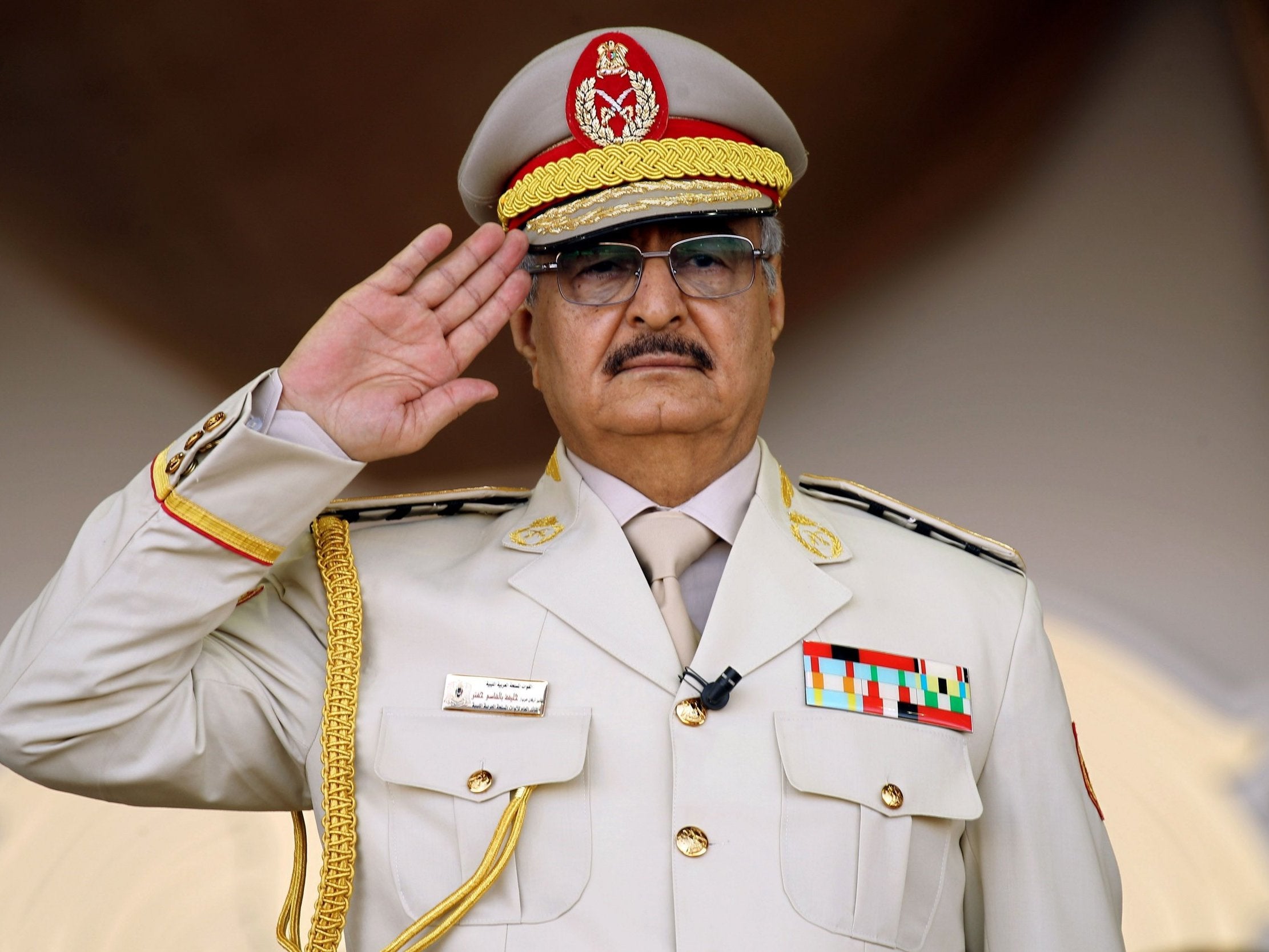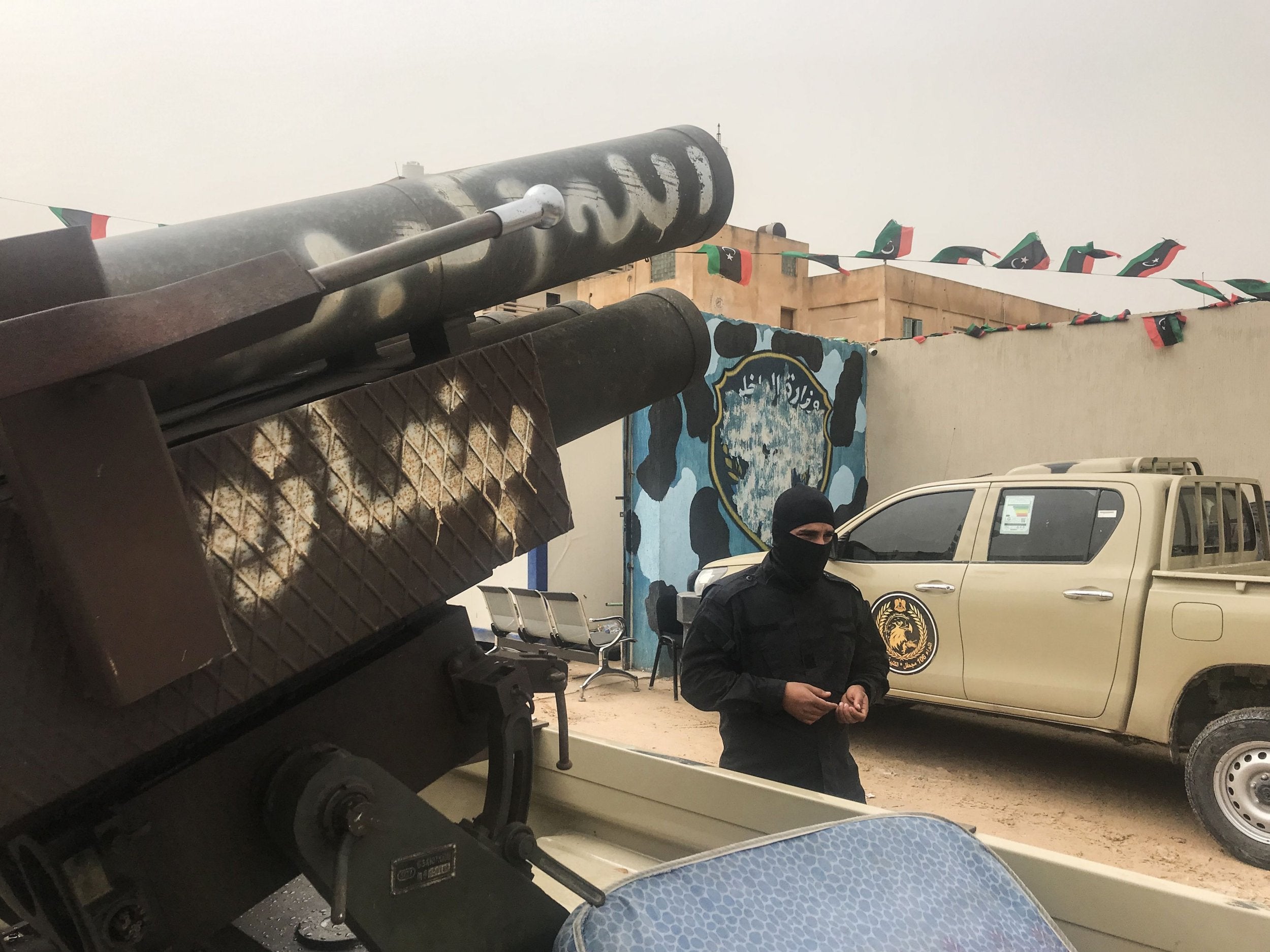Libya: Rebel general's forces 'seize Tripoli airport' amid fighting with rival militias
UN Security Council and G7 nations have warned rival factions to ‘halt military activity’
Your support helps us to tell the story
From reproductive rights to climate change to Big Tech, The Independent is on the ground when the story is developing. Whether it's investigating the financials of Elon Musk's pro-Trump PAC or producing our latest documentary, 'The A Word', which shines a light on the American women fighting for reproductive rights, we know how important it is to parse out the facts from the messaging.
At such a critical moment in US history, we need reporters on the ground. Your donation allows us to keep sending journalists to speak to both sides of the story.
The Independent is trusted by Americans across the entire political spectrum. And unlike many other quality news outlets, we choose not to lock Americans out of our reporting and analysis with paywalls. We believe quality journalism should be available to everyone, paid for by those who can afford it.
Your support makes all the difference.Forces loyal to rebel Libyan commander Khalifa Haftar claim to have seized control of the airport on the outskirts of the capital Tripoli, two days after he ordered the capture of the city.
Although the airport has not been functional since fighting in 2014 destroyed much of the facility, the rebel commander’s media office said troops had also captured the area of Wadi el-Rabeia, south of the capital, amid clashes with rival militias.
Tripoli is controlled by the UN-backed Presidential Council, Government of National Accord and supporting militias.
The violence came as UN Secretary-General Antonio Guterres ended a brief visit to Libya on Friday aimed at avoiding civil war, saying he left with “a heavy heart and deep concern”.
Foreign ministers from the G7 group, which includes the UK, released a joint statement warning that fresh fighting in the country was “harming innocent people” and urged all parties to “immediately halt all military activity”.
Mr Guterres went to the eastern region, which is the seat of a rival administration and parliament that Mr Haftar is aligned with. He met with Agila Saleh, head of the east-based parliament, according to spokesman Abdullah Ablahig.
“I am leaving Libya with a heavy heart and deep concern,” he told reporters at the airport shortly after a face-to-face meeting with Mr Haftar. “I still hope, if possible, to avoid armed confrontation around Tripoli.”
A showdown between Mr Haftar’s Libyan National Army (LNA) and the militias could plunge the country into another spasm of violence, possibly the worst since the 2011 civil war that toppled and killed dictator Muammar Gaddafi.

It would also put at risk upcoming peace talks between rivals brokered by the UN and aimed at drawing a roadmap for new elections.
The UN Security Council held an emergency closed-door meeting on Friday at the UK’s request and called on Mr Haftar’s forces to halt all military movements.
It also urged all Libya forces “to de-escalate and halt military activity”.

Mr Haftar’s troops captured the town of Gharyan, around 30 miles south of Tripoli without a fight earlier this week.
The rebel general then ordered his forces to march on the capital, saying in an audio recording posted online: “We are coming Tripoli, we are coming.”
Militias from the western cities of Zawiya and Misrata, which control Tripoli, said they had mobilised to confront his forces.
“We are the revolutionaries and the elders ... we declare we are in full mobilisation and war,” they said in a video statement posted online.
A group of allied militias called the Joint Tripoli Protection Force based in the area around the Libyan capital announced they would also deploy to repel Mr Haftar’s offensive.
Over 100 of Mr Haftar’s soldiers were captured by Zawiya militias, said army spokesman Ahmed al-Mesmari. Anti-Haftar activists on social media posted pictures of what they described as militiamen from Zawiya capturing dozens of the rebel general’s forces and armoured vehicles carrying stickers reading “106th Battalion”.
The unit is known to be commanded by Mr Haftar’s son, Khaled.
Militias in Misrata also launched an air strike targeting a LNA position at the foot of the mountains of Nafusa, said an army spokesman. He did not elaborate on the number of casualties.
Additional reporting by AP

Join our commenting forum
Join thought-provoking conversations, follow other Independent readers and see their replies
Comments